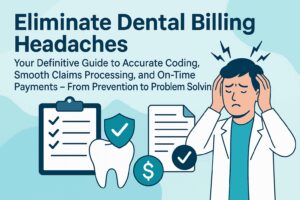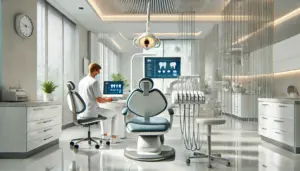
Tips for preventing dental patient cancellations

Preventing cancellation might be the toughest job of optimizing a dental clinic. There are so many factors that can cause a patient to miss an appointment. From traffic delays to overextended meetings to forgetting, the clinic can’t solve all issues to accommodate the client.
Before you begin developing strategies to reduce cancellations and no shows, it’s important to understand why patients cancel and what motivates them to miss their appointments. Frequently, it simply boils down to not wanting to deal with the experience of getting dental work done. Taking the time off work, going to the appointment, and of course, the entire time in the chair is something many patients don’t look forward to. They may decide to try to reschedule at the last minute, cancel their appointment, or even just not show up for their visit.
1. Stop Telling Patients It’s Okay to Cancel.
“Most of us don’t realize it, but we actually give our patients the “OK” to cancel on us”, Genevieve Poppe shared. She’s right. Think about it…
Front Office: “Would you like to schedule your next cleaning?”
Patient: “I’m not really sure what my schedule looks like in six months…”
Front Office: “Let’s get you scheduled, and you can change it if you need to.”
Patient: “Okay, sounds good.”
Sound familiar? We literally just told the patient that it’s okay to cancel on us! We are presenting the notion that this is okay. The expectations given indicate that canceling or rescheduling is no big deal. It’s simple for us and even simpler for them, right? Wrong. So why do we continue to tell our patients that it is?
2. Communicate appointment benefits and urgency
When speaking with patients about treatment options, it helps to personalize the message, so patients understand that you’re invested in their oral and overall health and they should be, too. By emphasizing the positives of staying on top of their oral health, you help patients understand that it’s not just about keeping an appointment, it’s to benefit their own health. Here are a few ways you can help patients connect their appointment to the benefits they can expect from it.
- Log patient notes regarding their personal health goals, upcoming events, and other relevant personal info.
- Review each patient’s notes prior to their appointment confirmation.
- Personalize your verbiage around relevant information, the benefits they will receive from their appointment, and the urgency of treatment follow through.
- Provide options if a patient calls to cancel. Ask them if it’s the day or the time. Use open/available time blocks to get them immediately rescheduled.
- Follow up immediately with a patient who no-shows. Make an effort to get them rescheduled.
- Put processes in place that allow patients to provide more advanced notice if they need to cancel an appointment.
3. Have an active short call list
This enables you to plug any holes in your schedule. Learn more on this method in “For increased production, create a short-call list.”
4. Remember when to make the reminder
For an operative appointment, remind the patient one day before unless the appointment is booked well in advance, in which case it’s 3-3-1.5. Welcome new patients directly
A call from the dentist to welcome new patients to the practice is a friendly gesture that will also serve to cut down on new-patient no-shows.6. If a patient fails to show up, call them right away
If you don’t reach the patient, let them know you’ll try back in a week. Repeat a week later if necessary. If there is still no response, put them on automatic reminders using their preferred form of communication.7. Ask Patients Why They’re Cancelling
No one likes conflict, and our front office teams are no exception. When a patient calls to cancel, the instinct is to say, “Sure, no problem, thanks for letting us know.” Sure, it’s the easy answer, but it also puts holes in your schedule. To fix the cancellation problem, we must understand where the problem stems from. To do so, we need our front office staff to ask the tough questions and have challenging conversations. When patients call in to cancel, we must ask them why. With this approach, we can start to understand the reasons behind the cancellations. Poppe shares with us an example of what you could say:Patient:“Hi, I need to reschedule my appointment that I have today.”
Front Office: “OH, NO!!! Is everything okay???” (It is perfectly okay to employ major Catholic guilt at this time!)
If the caller has a legitimate excuse, such as the flu, a death in the family, or a true emergency, you can use this as a relationship-building opportunity. Show your concern, and even send a card. If, however, you get a lame excuse (“I accidentally double booked a hair appointment at the same time”), don’t let the caller off the hook.
Front Office: “We have two hours scheduled for you today. Is there any way you can keep it?”
Patient: “Um, well, I just can’t.”
Front Office:“I understand. I’ll let Dr. Jones know that you had to cancel.”
Now, this patient is being held accountable for putting a major hole in your schedule, and you can bet it’s okay to mention it at their next appointment. A little guilt can go a long way.
Contact Us
Phone: 908-357-1515
111 Town Square Pl, Suite 1203 Jersey City, NJ 07310



















